Create a Judicial Performance Evaluation Commission and System
Senate Bill 45 proposes changes that could significantly impact the independence of Montana’s judiciary by altering how judges are selected and retained. This bill raises concerns about maintaining fair and impartial courts, a core principle in protecting the rights of all Montanans.
Sponsor: Senator Tom McGillvray (R-Billings)
This is a Senate Select Committee on Judicial Oversight and Reform requested bill.
Overview
The proposed judicial evaluation commission would duplicate existing oversight mechanisms and introduce additional costs. Montana’s judiciary already conducts evaluations on workload, efficiency, and fairness, and judges are subject to the Code of Judicial Conduct, which mandates competence, diligence, and impartiality.
The Judicial Standards Commission has the authority to discipline judges for violations, including suspension or disbarment, and the public has the right to file complaints and vote in judicial elections. The proposed commission would rely on subjective criteria that could disqualify experienced judicial candidates based on past political service or perceived bias. Given the existing oversight and accountability measures, the creation of this commission is redundant and would impose unnecessary financial and administrative burdens.
What concerns have been raised regarding Senate Bill 45?
1. Separation of Powers
The proposed judicial evaluation commission threatens the separation of powers by infringing on the judiciary’s authority to self-govern, as guaranteed by the Montana Constitution.
2. Existing Oversight
Judicial evaluations are already performed within the judiciary, assessing workload, efficiency, and fairness. Judges and judicial candidates are also held to high standards under the Code of Judicial Conduct.
3. Code of Judicial Conduct
The Code of Judicial Conduct requires judges to maintain competence, diligence, decorum, and freedom from bias. Violations of this code can lead to discipline, including admonition, suspension, or disbarment.
4. Public Oversight
The public already has the right to make complaints to the JSC and to vote for judges and justices, just as they do for legislators. This ensures transparency and public involvement in the judicial system.
5. Judicial Standards Commission
The Judicial Standards Commission (JSC) is responsible for investigating complaints and disciplining judges if they violate the Code of Judicial Conduct. This provides an effective internal mechanism for holding judges accountable.
6. Duplication of Effort
The proposed evaluation commission would duplicate existing judicial evaluations and mechanisms, creating unnecessary costs and administrative burdens without adding meaningful value.
7. Subjective Criteria
The proposed evaluation commission would assess judges based on subjective rather than objective criteria, which almost certainly lead to biased or inconsistent evaluations. It is not even clear from the bill who would conduct these evaluations or what their qualifications might be.
8. Separation of Powers
The proposed judicial evaluation commission threatens the separation of powers by infringing on the judiciary’s authority to self-govern, as guaranteed by the Montana Constitution.
9. Potential for Disqualification
The evaluation criteria could disqualify many qualified individuals from serving as judges based on their past conduct, such as holding political office, which could unfairly exclude capable candidates.
10. Unnecessary and Invasive
The judicial evaluation commission is both unnecessary and invasive, as it undermines the independence of the judiciary, which already has ample oversight both internally and from the public. The Select Committee seems to have jumped to a result without fully studying or understanding the existing process.
